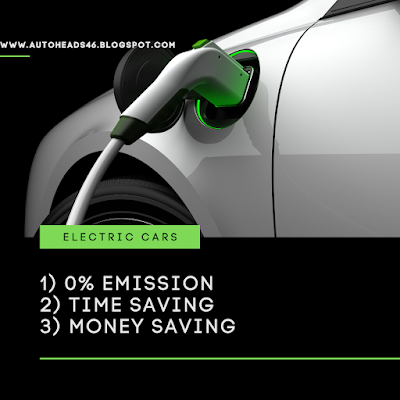Importance
Of Electric Cars In Asia Region
The Rise of
Electric Cars in Asia: Why They Matter
Electric cars have gained significant popularity in Europe and North America, but this alternative vehicle technology hasn't caught on the same way in Asia yet. With rising pollution and sustainability concerns, more people are turning to electric cars to search for an eco-friendly ride. If you're considering buying an electric car, consider why it's important for Asian countries to embrace this green transportation solution.
Saving Time
Electric cars are becoming increasingly popular in Asia for several reasons. One big reason is that they save time due to maintenance. Traditional gasoline cars need tune-ups and oil changes, which can take a few hours. Electric cars don't need tune-ups and oil changes, saving you time and money. If you have the money for an electric car, it's a wise investment to make. We're all trying to save time nowadays, so why not do what you can? It might seem like a lot more work at first, but once you start using an electric car, it'll become second nature. It doesn't just save time for your daily commute; it saves your bank account too!
Saving Money
Electric cars are becoming increasingly popular in Asia as petrol prices rise. Not only do they save drivers money at the pump, but electric cars also have a much smaller environmental impact than traditional petrol or diesel cars. When it comes to price, electric cars can be cheaper on the road because there is no need for maintenance such as oil changes and tune-ups that drive up the cost of traditional vehicles. In some cases, such as with BYD's Qin EV300 model, people can lease an electric car for about $20 per month, which is about half what most people pay for their monthly car payment. The company has delivered over 6,000 EVs to customers in China and has expanded globally. Recently, Tesla announced plans to build its Gigafactory 3 facility in Shanghai's Lingang New City near the Yangtze River Delta. Local media outlets estimate that Tesla will invest US$5 billion into the factory, producing both batteries and Tesla models within three years. For now, electric vehicles make up less than 1% of total car sales in China, so most manufacturers are hesitant to switch production from traditional cars. However, many see them as key to fulfilling Beijing's promise to end sales of fossil fuel-powered automobiles by 2030. Considering new government regulations limiting the number of license plates issued each year - effectively reducing demand for petrol-driven cars - along with expensive imports due to increased tariffs on US-made goods; it may not be long before we see more electric options available in Chinese showrooms.
Helping the
Environment
Electric cars are becoming increasingly popular in Asia as they a more environmentally friendly. In China, electric car sales increased by 73% in 2016, and overall, global sales of electric vehicles are expected to rise sharply in the coming years. In addition to helping the environment, many countries see electric cars as an opportunity for economic growth. South Korea and India plan to invest $1 billion into their respective electric vehicle industries by 2020.
Moreover, electric car manufacturers like Tesla believe this shift is necessary for meeting international emissions targets set out in Paris Agreement (and later adjusted) last year.
Indeed, if fully adopted globally, some studies estimate that this new technology could reduce CO2 emissions by up to 2%. Furthermore, electric cars do not produce exhaust fumes that can cause cancer or lung disease. However, there are concerns about whether electricity generated from coal-fired power plants will offset any environmental benefits of these cars. Therefore, governments and investors should focus on boosting investments in renewable energy sources rather than dirty fossil fuels.
Helping the
World
Electric cars are becoming increasingly popular in the Asia region for a variety of reasons. They help reduce pollution and dependence on oil, and they're also more efficient than traditional gasoline cars. Plus, electric cars are often cheaper to operate and maintain over time. In Asian countries such as India, Japan, China, and South Korea, automakers are rolling out new models of electric vehicles at an aggressive pace.
This is a crucial reason because these countries have set ambitious goals calling for a rapid shift from gas-powered vehicles to electric cars by 2030.
Meanwhile, India wants to sell all new vehicles as electric by 2030, and Japan wants 20% of all new car sales to be zero emission by 2050. The Philippines has pledged a target of 30% of new car sales being electric by 2025, while Indonesia will require all public transportation to be fully electrified by 2045.
Furthermore, electricity prices across many parts of Asia tend to be significantly lower than those in the US or Europe. Indeed, according to Bloomberg New Energy Finance data cited by Quartz, electricity prices are three times higher in the US compared with China. Thus, even without government subsidies or tax breaks (which can further drive down operating costs), owning an electric vehicle can sometimes cost less than owning a gas-powered one!
Many people believe there's no doubt that electric cars will soon become dominant throughout much of Asia!
Access to
Fast Charging Stations
As the world moves away from fossil fuels and towards renewable energy, electric cars are becoming more and more popular. In Asia, this shift is happening even faster than in other parts of the world. There are several reasons for this, including the region's high population density and the growing air pollution problem.
Lack of Refueling
Station Concerns Are Overblown
One of the main concerns holding back the adoption of electric cars is the lack of infrastructure, explicitly charging stations. However, this lack of infrastructure is not as big of a problem as it seems. As most people only drive around 20 miles daily on average and recharging to 80% capacity takes less than 30 minutes, one could go three weeks without having to charge.
Conclusion
So, in the end, we conclude that electric cars will be important daily as time passes because the environment needs them; our society needs them, and especially individuals that don't have much time like business people or job workers need them.
Thank you for reading the article. Feel free to contact us
Also Read About
https://autoheads46.blogspot.com/2022/08/toyota-yaris-2022-price-features-and.html






.png)



0 Comments